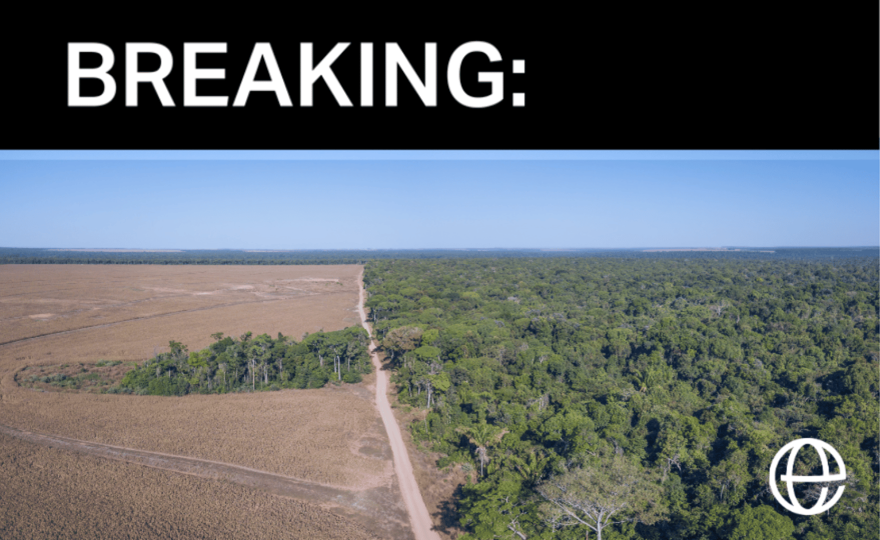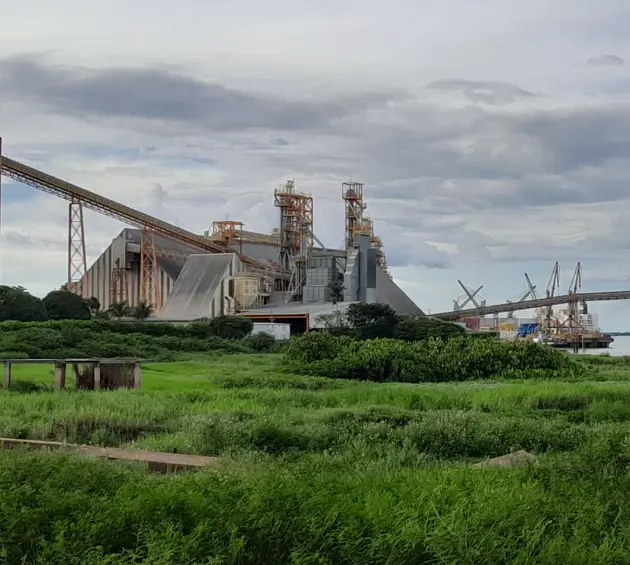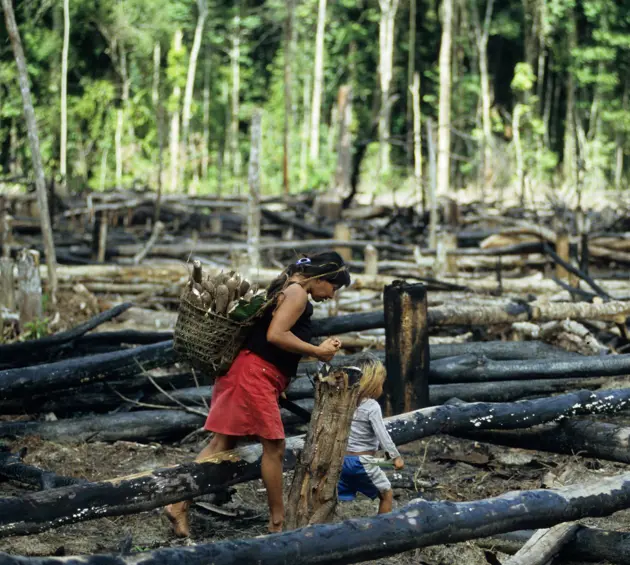ClientEarth Communications
4th May 2023


We’re filing a legal complaint against US-based agribusiness giant Cargill over its failure to deal with its contribution to deforestation and related human rights abuses in Brazil.
Brazil’s vulnerable forests and savannas are under threat. The mass production of soy to feed cattle, pigs and chickens is driving the destruction of these critical ecosystems, pushing them dangerously close to tipping points they may never recover from, while putting the communities that depend on them in danger.
Cargill is one of the biggest food companies on the planet and one of the largest exporters of Brazilian soy, supplying major retail brands including Tesco, McDonalds and Sainsbury’s. Its huge soy business has been linked to deforestation and violations of the rights of Indigenous, Afro-Brazilian and other forest-dependent communities through its extensive soy supply chain and operations on the ground.
We’ve found that the company is failing to carry out proper checks on the vast amount of soy it buys, trades and ships to markets worldwide to ensure it isn’t causing harm to people and nature.
So we’ve submitted a complaint in the US that alleges that Cargill has breached the Organisation for Economic Cooperation and Development (OECD)’s guidelines on responsible and sustainable business practice.
Cargill’s deforestation and human rights failures raise the risk that the chicken and meat sold in supermarkets across the world has been raised on so-called ‘dirty’ soy. We’re taking action so that it starts cleaning up its operations.

Though perhaps not a household name, Cargill is one of the biggest food companies in the world today. From breakfast cereal to toast, chicken nuggets to chocolate – many foods that people buy have some link to Cargill in their journey from producer to supermarket shelf.
The company also happens to be the largest privately-held firm in the US by revenue, which last year soared to a record $165 billion – making the Cargill-MacMillan family who own the majority of the business one of the richest in America.
Cargill acts as an intermediary between farmers and major global food retailers, sourcing from the Amazon rainforest, as well as the neighbouring Atlantic Forest and Cerrado savanna. Its soy operations in Brazil span every stage of the supply chain except for actually growing the beans, from supplying farmers with inputs like seeds, fertilizer, machinery and financing, to providing storage, transport, and processing facilities for other soy traders.
Eventually, much of the soy it ships from Brazil is turned into animal feed used in farms around the world, including in its own chicken farms.
There is a string of reports linking Cargill to deforestation and related human rights abuses in Brazil. The company should be carrying out extensive checks to identify how it is contributing to these impacts and taking steps to eliminate them.
Cargill claims to have a sophisticated monitoring, verification and reporting system to end deforestation related to soy production in its supply chains. It also makes a policy commitment to support Indigenous Peoples and local community rights.
However, our analysis of its public policies and reporting documents tells a different story – one of serious failings that we say put the company in breach of the OECD Guidelines.
Specifically, Cargill does not appear to conduct:
Importantly, our complaint alleges that Cargill does not appear to have adequate policies and systems in place to address human rights impacts related to its soy operations in Brazil, even though it has been linked to cases of rights violations.
We cannot protect the Amazon, Atlantic Forest or the Cerrado savanna from further destruction if the big agribusinesses operating in these vital ecosystems are not taking the necessary steps to minimise their role in destroying them.
Given Cargill’s market influence, know-how and massive resources, it should have systems and policies that keep deforestation and ecosystem conversion, and related human rights abuses, out of its supply chain and therefore out of our everyday foods. It’s in the company’s best long-term interests to put this into action.

The Amazon, Atlantic Forest and the Cerrado savanna are among the most biodiverse places on Earth. Their health is critical to the world’s efforts to avoid biodiversity loss and fight dangerous climate change. But these precious ecosystems are in serious danger.
Agricultural expansion is the primary driver of deforestation and ecosystem conversion in Brazil, as vast stretches of land are cleared to make way for large-scale cattle ranches and soy plantations.
Destruction of large areas of the Amazon has been closely linked to the opening of Cargill’s controversial trading port in Santarém in the Northern state of Para in 2003, which has facilitated exports out of the region and opened up vast areas of forest to soy production.
There has been a human cost too. Deforestation and ecosystem conversion fuels violations of the rights of Indigenous Peoples, Afro-Brazilian and other local communities – the very communities that, when given control over their lands, prove to be the most effective at protecting forests.
We want Cargill to improve its due diligence policies to minimise the risk that its operations and supply chain are contributing to deforestation and human rights violations in Brazil – in line with its responsibilities under international standards.
Governments around the world are already moving to make enhanced due diligence mandatory. The EU has a new law blocking products linked to deforestation from its market, and the UK Environment Act does the same for products linked to illegal deforestation. Similar proposals are being considered in the US.
Ultimately, governments, regulators, the financial sector, retailers and consumers are all waking up to agribusiness’ role in the destruction of nature. It is in Cargill’s best interests to get on the front foot in the face of incoming regulation and start properly addressing its impact on people and the planet.